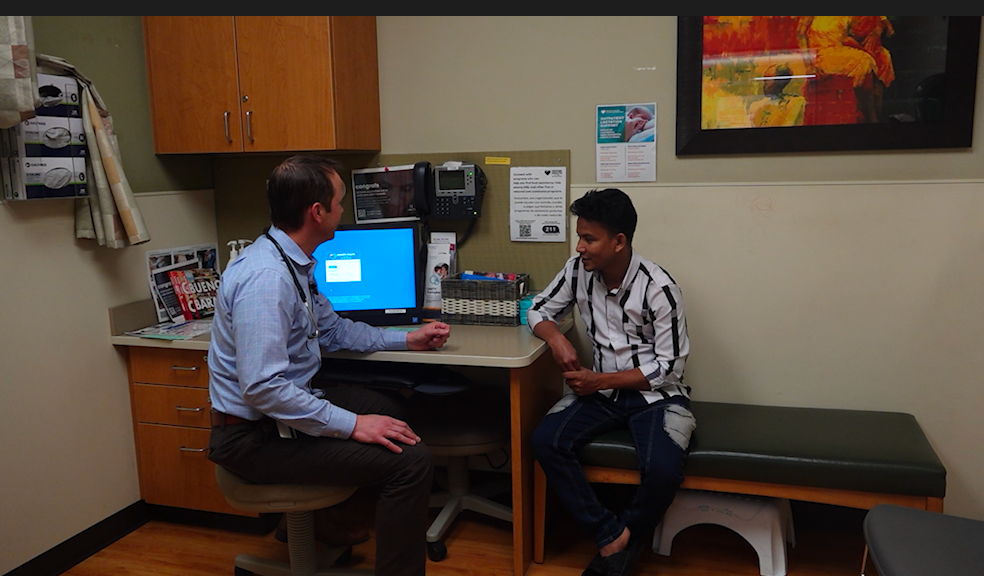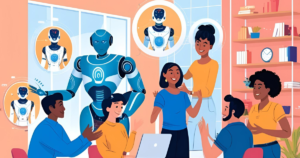Doctor Claims AI is Revolutionizing Patient Care and Alleviating Burnout in Healthcare Settings

How AI is Transforming Doctor-Patient Interactions
Introduction to AI in Healthcare
Artificial intelligence (AI) is reshaping various fields, including healthcare. In particular, a new technology known as ambient listening is gaining traction among medical professionals. This innovative system listens to doctor-patient conversations and provides real-time transcriptions, which help create detailed clinical notes without interrupting the interaction.
What is Ambient Listening?
Ambient listening is a type of AI that uses voice recognition technology to capture conversations in medical settings. According to Dr. Daniel Kortsch, who specializes in artificial intelligence and digital health at Denver Health, this technology significantly improves the dynamics of doctor-patient communications. It allows doctors to focus more on their patients and less on administrative tasks.
- Real-time Transcriptions: The AI listens to the ongoing conversation and transcribes it instantly.
- Multilingual Support: Some systems can handle multiple languages, making them more accessible.
- Clinical Note Compilation: After the appointment, the tool generates a summary that can be added directly to the patient’s medical record.
Benefits of AI in Healthcare
The use of ambient listening technology presents various advantages for both healthcare providers and patients.
For Healthcare Providers
- Reduced Administrative Burden: Physicians are less likely to spend long hours at home completing paperwork, allowing them more personal time.
- Improved Efficiency: AI tools expedite the note-taking process, allowing doctors to focus on patient care.
- Enhanced Interaction: By automating note-taking, healthcare providers can engage in more meaningful conversations with patients, shifting the focus back to human interaction.
For Patients
- More Focused Visits: With the administrative side under control, doctors can give full attention to their patients during appointments.
- Better Communication: An AI-enhanced conversation allows for clearer exchanges, where patients may feel more heard and understood.
- Consistent Care: Automated summaries help ensure accuracy in patient records, reducing the risk of errors.
Adoption of Ambient Listening Technology
One widely used tool for ambient listening in healthcare is called Nabla. Doctors at Denver Health report that it has made a notable impact since its adoption in late 2024. The technology not only captures conversations effectively but also produces post-visit summaries that integrate into existing medical records.
Impact on Provider Workloads
The healthcare community faces significant challenges, including a projected shortage of 57,000 to 72,000 physicians in the U.S. this year alone, as reported by the Association of American Medical Colleges. Ambient listening technology can alleviate some of this pressure by streamlining processes and improving work-life balance for doctors.
- Less "Pajama Time": By minimizing after-hours documentation, physicians can reduce the time spent working from home.
- Fewer Errors: Accurate transcriptions help ensure that notes reflect conversations accurately, reducing data entry mistakes.
Patient Trust in AI
Concerns about AI replacing human interaction in healthcare are common. However, tech companies emphasize that physicians maintain ultimate control over patient care. The systems function as support tools, with checks and balances to ensure the accuracy and security of patient information.
Kenneth Harper, head of Dragon Copilot at Microsoft, notes, "The physician is still 100% in control of what happens." This assurance can help patients feel more comfortable with the integration of technology into their healthcare experiences.
Expansion of AI Usage
Denver Health aims to broaden the application of ambient listening technology to other health professionals like nurses, psychologists, and physical therapists. This step could provide the benefits of AI across various specialties, further enhancing the healthcare system’s efficiency and effectiveness.
As Dr. Kortsch aptly puts it, "People become doctors not because they want to write notes and fill out paperwork but because they want that interaction," emphasizing the human aspect of medicine.
For more health stories and updates, you can explore reputable healthcare platforms that delve into the latest advancements and news in the field.





